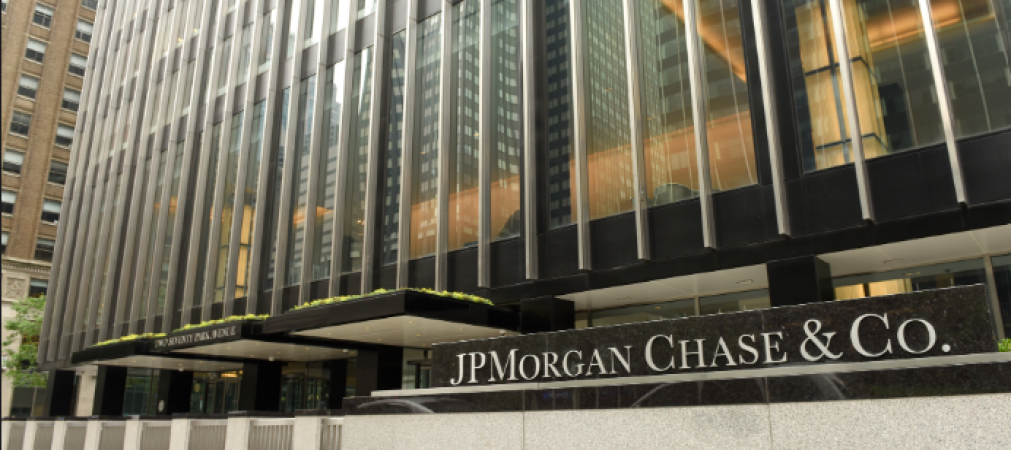
United States: JPMorgan Chase bought the website for a student-aiding platform two years ago for $175 million after accusing the founder of massive fraud.
The finance giant alleges it was sold a "fiction" by fintech startup Frank, and is suing 30-year-old founder Charlie Javis and other former employees for allegedly lying about the company's performance, ie. When the bank asked for proof by setting up a huge database of fake customers for
JPMorgan made a nine-figure investment in what Frank has dubbed an "Amazon for higher education" in 2021 after the startup has already received backing from billionaire Mark Rowan and VC firm Aleph, edtech investor Reach Capital, among others. and homework-helper app maker Chegg. On LinkedIn at the time, Javis boasted about the JPMorgan deal, writing that Frank had already "served over 5 million students at over 6,000 colleges."
Also Read: Global optimism increases going into 2023
According to a lawsuit filed last month in federal court, Javis lied "about Frank's success, Frank's size and the depth of Frank's market penetration" in order to defraud JPMorgan.
According to Javis, "In documents held in the Acquisition Data Room, in pitch materials, and through oral presentations, Javis represented that more than 4.25 million students applied for federal student aid using Frank's application tool." Frank had created accounts to begin with."
JPMorgan claims in its lawsuit that it only discovered the truth about Frank after sending emails to approximately 400,000 clients, most of whom returned.
Instead of a business with 4 million customers, JPMorgan discovered months later that it was entrusted with "less than 300,000 customers," according to the bank's lawsuit.
Javis is accused of hiring a data scientist to create fake accounts, which led to the impression during JPMorgan's due diligence process that Frank's customer base was larger than the city of Los Angeles – when it was actually based out of Lexington, Kentucky. was small
According to Javis's roster, "4.265 million" students "listed names, addresses, dates of birth and other personal information that did not actually exist".
According to the bank, Jevice initially declined to provide customer metrics, claiming that sharing such a list raised "privacy concerns". Javis "chose to invent several million franc customer accounts out of whole cloth" after the bank's team insisted.
Also Read: Black holes in two merging galaxies were seen having dinner together
Screenshots of Javis' presentations in which he portrayed Frank's detail and demonstrated that more than 4 million customers are involved in the lawsuit.
Javis's attorney, Alex Spiro, is referring to the JPMorgan lawsuit as "nothing but a cover-up." For The Wall Street Journal, he painted a different picture of what happened:
"After JPM rushed to buy Charlie's Rocketship Company, JPM realized they could not escape current student privacy laws, engaged in malpractice, and then tried to renegotiate the deal. Alarm After bailing, Charlie filed a lawsuit.
Whatever the outcome, JPMorgan, the nation's largest bank, will come out with a scar partly as fintech comes under renewed scrutiny after being rocked by a string of scandals that need to be handled more cautiously. Maybe it could have been avoided.
In a press release from 2021, JPMorgan defended its purchase of Frank by claiming that it gave it access to the "fastest-growing college financial-planning platform" and direct access to the network of millions of teens across thousands of educational institutions. provided the way.
Javis isn't a big red flag walking by, rapping that she's "going to transfer your passwords/all your funds," or a "straight-up sociopath" like other alleged 30-something scammers of recent times. being described in—like Sam Bankman-Fried or the crypto-heist duo Razzlekhan and Dutch—or being described as "straight sociopaths".
In 2019, he was named to the Forbes 30 Under 30 list, and nearly ten years ago, as a 19-year-old University of Pennsylvania student who created a digital platform to teach students about microfinance, he was recognized by the Fast The company was named after itself. List of the most creative people. (Javis also recently contributed to Fast Company's website.)
But Congress had raised some red flags in the years prior to the JPMorgan deal. Four members of the US House of Representatives requested an investigation by the Federal Trade Commission (FTC) in 2020 because they thought Frank smelled fishy.
The letter states that "we ... suspect that the company is using data collected from fraudulent students to make a profit by selling the data to third-party advertisers," and that the frank application tool "doesn't make it easy." makes "seem to be a way to obtain student relief funds, and instead mine and exploit students' data for Frank's profit."
Frank received a letter of warning from the FTC, giving him ten days to respond to several "potentially misleading claims" he found on the website (which now simply read, "Frank is now available". No. Visit StudentAid.gov to submit your free Application for Federal Student Aid (FAFSA).
Also Read: The same size of super-Earths is explained by a new theory
Joyce and his attorney claim that JPMorgan also let him go to avoid paying the $28 million that is still owed from the deal. He has also sued JPMorgan separately, demanding that it pay for legal fees he has accumulated as a result of the bank's internal investigation.